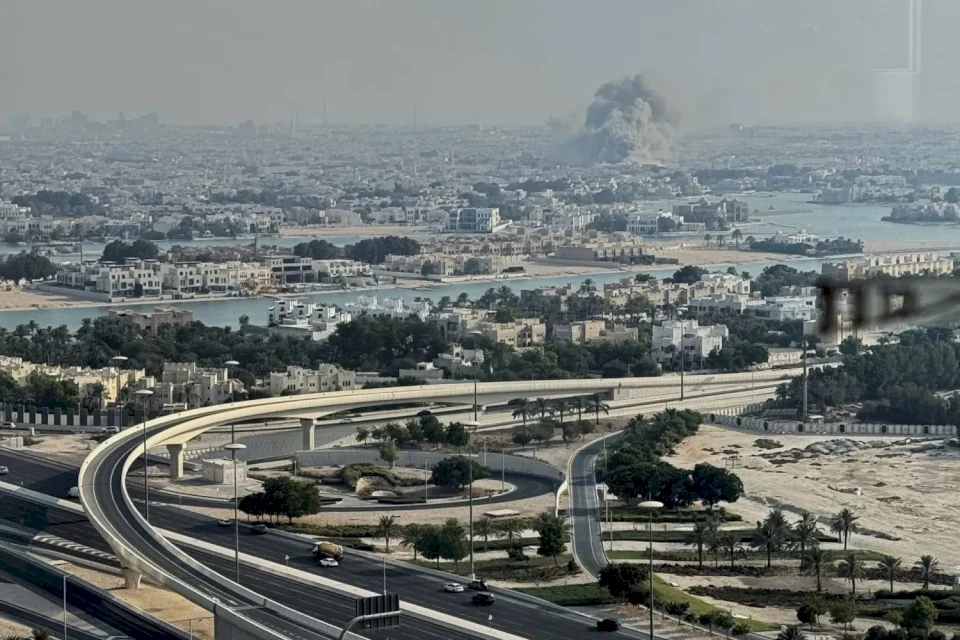
Israeli Writer: The Failure of the Attack on Qatar is Deeper Than It Seems
SadaNews - In an article published in the Hebrew newspaper "News 12", Israeli writer Eli Bodeh discussed the assassination attempt carried out by Israel against Hamas leaders in Doha, stating that it could turn into a strategic mistake that would cost Israel more than any other gain.
Bodeh explained that the political and diplomatic results were clearly negative; even if the operation partially succeeded militarily, it harmed trust with Qatar and the Arab world, complicated relations with the United States, and reinforced the position of Israel's enemies, without contributing to the advancement of efforts to free prisoners.
The writer pointed out that Israel has built, over recent years, secret relationships based on trust with several Gulf countries through precise communications carried out by officials from the Mossad and the Ministry of Foreign Affairs.
Opposition from the Mossad
He added that these relations were the result of long efforts, so it was not surprising that the head of the Mossad opposed the timing of the operation, especially since any harm to the Qatari mediator, who enjoys diplomatic immunity, represents an unusual step in Israeli diplomacy.
Bodeh also noted that history reflects Israel's previous attempts at similar procedures that aroused a feeling of violation of trust, such as the attempted assassination of Khaled Mashal in Jordan in 1997, or the assassination of Mahmoud al-Mabhouh in the UAE in 2010.
He added that Middle Eastern countries, including those of peace and normalization, fear that Israel seeks to achieve regional dominance, and the statements of some Israeli ministers and the actions of the army have reinforced the belief among Arabs that Israel is trying to expand its economic and political influence, prompting some regional players to seek alternatives.
Unclear Objectives
Bodeh believes that the original goal of the operation was unclear, as it is uncertain whether the assassination of Hamas leaders would lead to a softening of the movement's stance or accelerate the release of prisoners.
On the contrary, the operation may have strengthened Hamas's determination to fight until the end, and could have posed greater risks to the lives of the prisoners, while at the same time showing adversaries that no one is safe in any refuge.
He emphasized that the attack placed the United States in a difficult position, as U.S. President Donald Trump had to balance between Israel's position and Qatar's position, which led him to make reluctant and cautious statements before announcing a meeting with the Prime Minister of Qatar to affirm the strength of the U.S. alliance with the Gulf state.
The attack, as Bodeh points out, has returned Qatar to the regional spotlight, as it hosted leaders of Arab countries and ministers to show solidarity with it, and also called for an emergency meeting to discuss the attack and adopt a collective position.
Enhancing Qatar's Position
The writer affirmed that this step enhanced Qatar's position on the international stage despite challenges and regional competition, indicating that any violation of sovereignty would have repercussions for other countries.
He concluded his article by emphasizing that assessing the damage to Israeli-Qatari relations so far is difficult; however, past experiences indicate that breaches of trust are usually punished by a temporary freeze in relations, even though Qatar continues to maintain its vital role as a mediator between Israel and Hamas, and does not seem willing to abandon this role that has granted it extensive international leverage, as he expressed.

17 Martyrs in the Last 48 Hours in Gaza

11 Martyrs, Including Children and Women, in Israeli Airstrikes on Gaza

Arrests During Israeli Occupation Forces' Incursion into Various Areas of the West Bank

Report: Trump May Order Attack on Iran Next Sunday

Trump: Iran Wants to Reach an Agreement.. and Knows the "Deadline"

Shaath: Rafah Crossing will be opened in both directions starting next Monday

America Imposes Sanctions on Several Iranian Officials Including the Interior Minister

